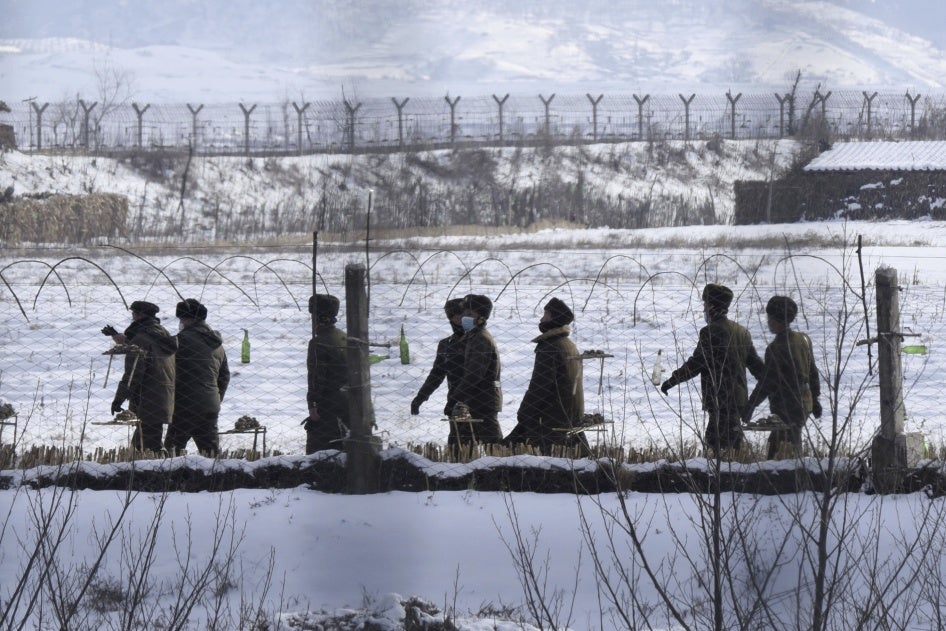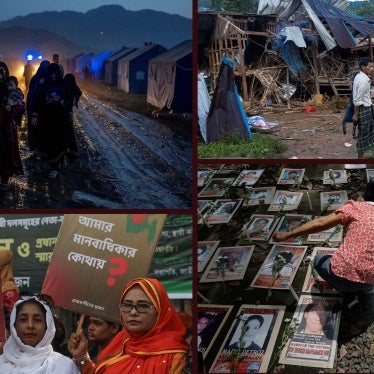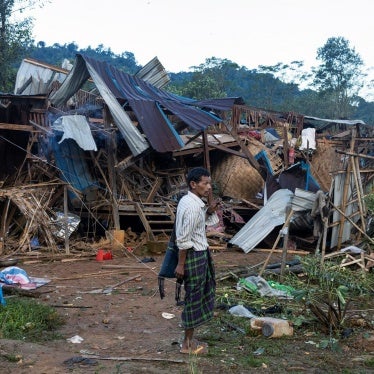(Bangkok) – The North Korean government in 2023 continued to use the Covid-19 pandemic as a pretext to maintain “shoot on sight” orders on its northern border to restrict movement, maintain restrictions on trade, and strengthen ideological control, Human Rights Watch said today in its World Report 2024. The government’s repressive policies deepened North Korea’s isolation while worsening the country’s humanitarian crisis.
“The North Korean government still uses Covid-19 as an excuse to instil fear and further oppress the North Korean people by sealing the country’s borders, and restricting trade and access to food and other necessities,” said Lina Yoon, senior Korea researcher at Human Rights Watch. “North Korea should reopen its borders, allow aid organizations into the country, and accept monitored international assistance.”
In the 740-page World Report 2024, its 34th edition, Human Rights Watch reviews human rights practices in more than 100 countries. In her introductory essay, Executive Director Tirana Hassan says that 2023 was a consequential year not only for human rights suppression and wartime atrocities but also for selective government outrage and transactional diplomacy that carried profound costs for the rights of those not in on the deal. But she says there were also signs of hope, showing the possibility of a different path, and calls on governments to consistently uphold their human rights obligations.
The excessive and disproportionate restrictions imposed during the Covid-19 pandemic have compounded the effects of decades of the North Korean government’s violations of the rights to food, health, and to an adequate standard of living; and to freedom of expression and movement. The restrictions have severely impaired market activities that people need for their livelihood, and to obtain food and essential goods.
As North Korea’s economic and humanitarian situation worsened, the government continued to spend vital resources to prioritize its weapons development program, conducting over 30 missile tests between January and September.
The government also continued to ramp up ideological control during 2023, banning the use of language that has South Korean or foreign influence. Foreign media outlets reported public trials in the border region targeting youth watching unsanctioned videos and using South Korean language.
The authorities maintained its 2020 shoot-on-sight orders for any person or animal trying to cross its northern border without authorization. While the government announced the reopening of its borders in August, most diplomats and international aid workers are still unable to return to the country. Although official trade increased, it remained lower than before the start of the Covid-19 pandemic.
The authorities also increased controls on domestic distribution of products and unsanctioned market activity. Major droughts in March and April, and flooding in August, exacerbated the effects of these actions.









